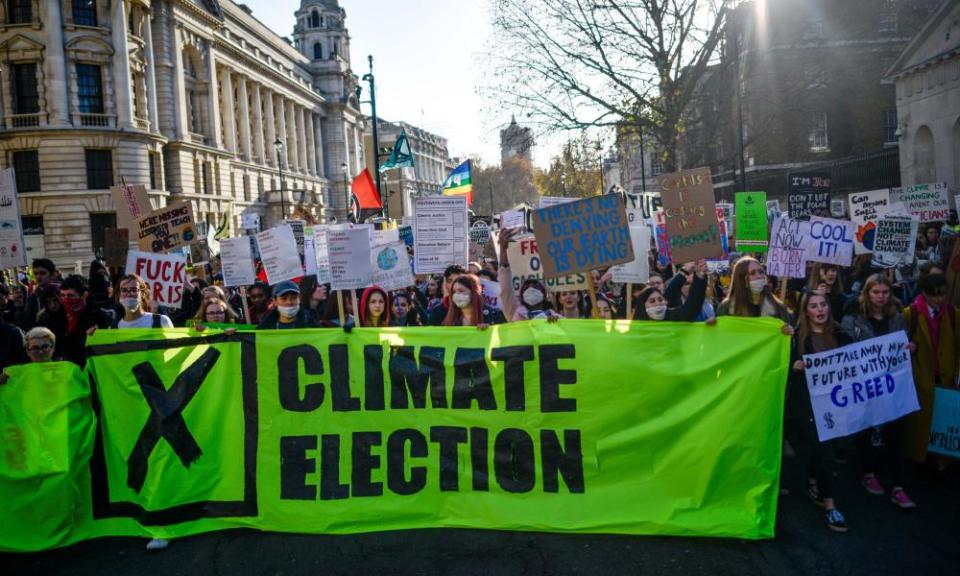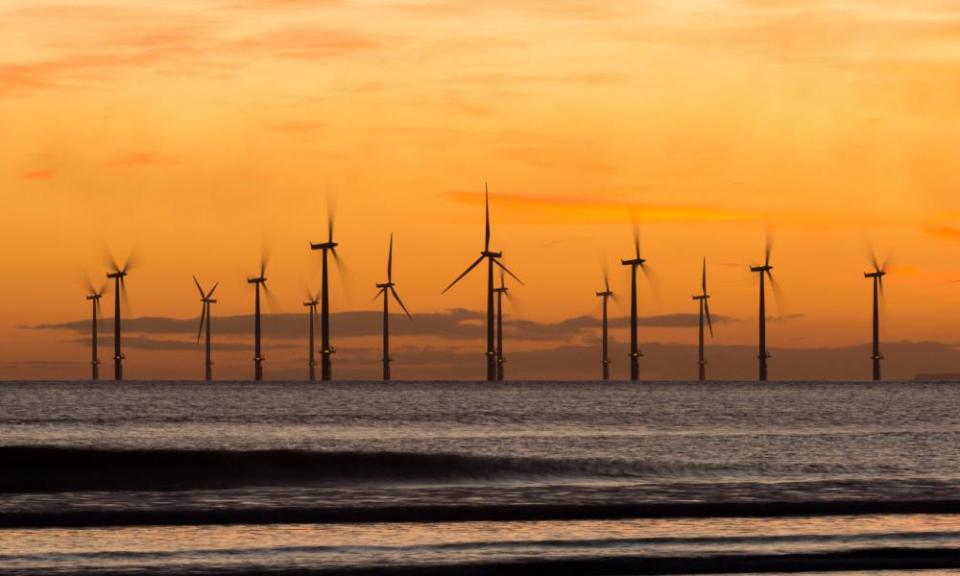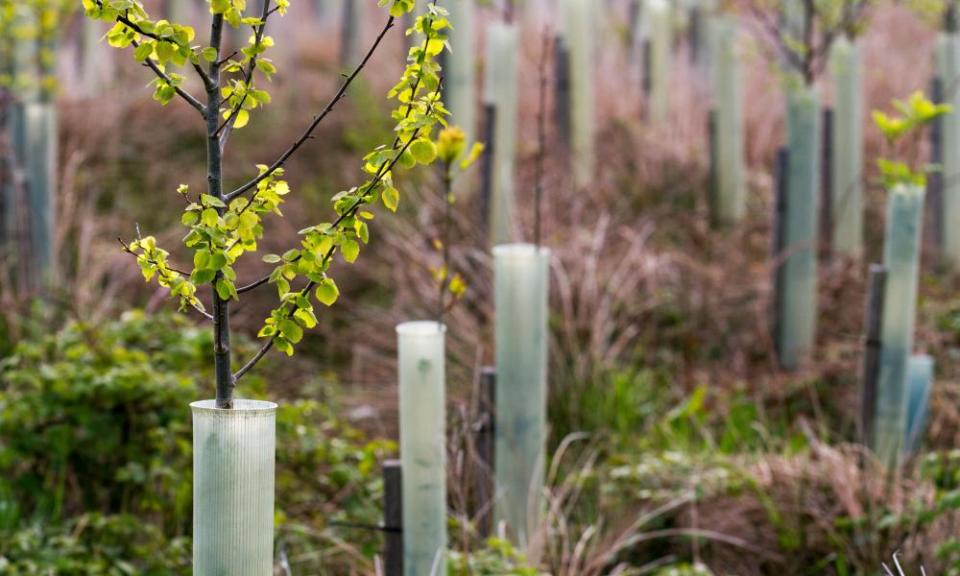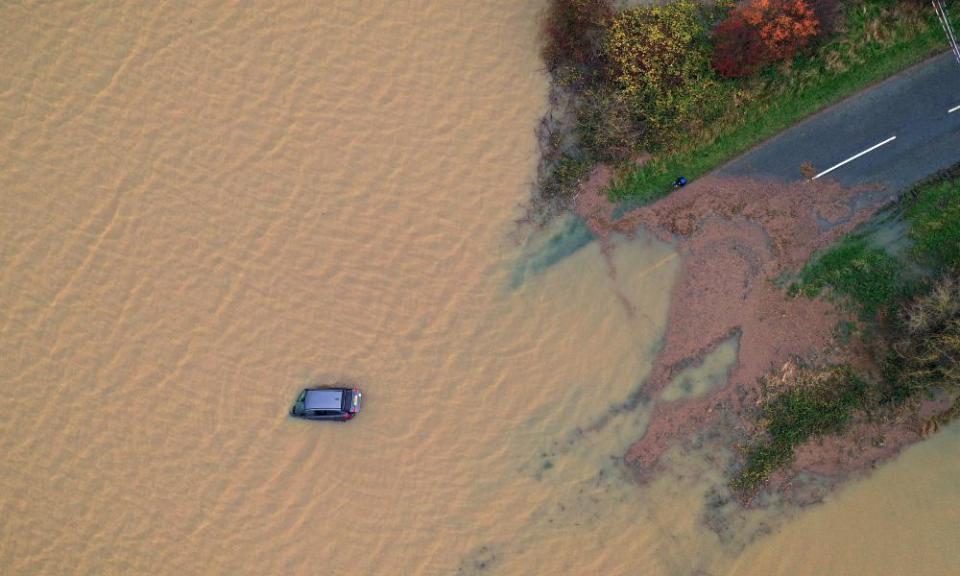What will you do about the climate crisis? The parties answer

The Guardian put the following questions to the main politicial parties to draw them out on specific key climate and environmental issues ahead of the election.
Is the climate crisis the biggest issue the UK faces as a nation?
Conservatives: Yes, it is one of the biggest issues facing the world. Thanks to the efforts of successive governments, the UK has cut carbon emissions by more than any similar developed country. We have also already doubled our support for developing nations to tackle climate change.
Greens: Absolutely. The science is clear: it is the biggest threat facing the UK and the world.
Labour: Yes and this election is our last chance to tackle it. We’re already off course to meet our targets and radical and urgent action over the next five years is essential.
Liberal Democrats: Yes, a Liberal Democrat government would solve Brexit on day one, so climate change would be the biggest issue.
SNP: Scotland – like the rest of the world – faces a climate emergency. We have a moral responsibility to tackle climate change and will lead the way in showing how our society can transition to net zero.
Does your party support the students striking from school and/or the Extinction Rebellion protests demanding urgent action on the climate crisis?
Conservatives: We don’t support students losing out on their education, though we recognise and respect the passion that young people feel. We do not support illegal action that disrupts the lives of ordinary, hardworking people.
Greens: We have supported the school strikers from day one. Young people will be most affected by the effects of climate chaos but don’t have a political voice or vote.
Labour: Absolutely. This year saw the blossoming of a global movement calling on politicians to wake up. We have turned its demands into detailed, credible plans for real change.
Lib Dems: Of course we support this action. It is deeply worrying that children are feeling the need to strike because they’re worried about their future. We are supportive of the aims of Extinction Rebellion and support their right to protest. But some of their actions have been counter-productive.
SNP: We applaud the actions by school students in drawing attention to the need for greater urgency in tackling climate change.

Will your government use public money to implement a national energy efficiency programme that upgrades millions of homes, reducing carbon emissions and bills?
Conservatives: We will invest £6.3bn to improve the efficiency of 2.2 million disadvantaged homes. This will reduce their energy bills by as much as £750 a year. We will also spend £2.9bn levelling up the energy efficiency of our schools and hospitals.
Greens: We will make energy efficiency a national infrastructure priority, and invest the money to upgrade a million homes a year to the highest modern standards [paid for from] general taxation.
Labour: We have the biggest home upgrade programme since the second world war. We aim to upgrade every single home in the UK so that they are warm and energy efficient, bringing household bills down by an average of £417 per household per year by 2030. Low income households can access these upgrades for free with government grants. Better off households will be able to access zero interest loans.
Lib Dems: Yes. We will invest £15bn over the next parliament to retrofit 26 million homes by 2030. This would save the average household £550 a year on energy bills.
SNP: The Scottish government is already implementing a national energy efficiency programme with interest-free loans of up to £15,000 and heavy subsidies for low-income households.
Will your government use planning law to actively support onshore wind and solar farms?
Conservatives: Onshore wind capacity has increased by more than 200% since the Conservatives came into power, but it’s vital that new onshore developments have the support of local communities, who must have the final say over whether to accept new installations in their area.
Greens: The UK has an abundance of the wind, tides, sun and rivers needed to be self-sufficient in energy. We will transform the planning system to support a massive increase in renewable generation. Our energy plan aims for 70% of the UK’s energy to be produced by wind power, with most of the remainder to be made up by other renewables, by the year 2030.
Labour: We’re doing more than just changing the planning laws, we’re going to build them ourselves. We’ll build 2,000 new onshore wind turbines and enough solar panels to cover 22,000 football pitches. We’re not going to wait around for the market to pick up its act.
Lib Dems: Yes. We will accelerate the deployment of renewable power, providing more funding, removing the Conservatives’ restrictions on solar and wind. We aim to reach at least 80% renewable electricity in the UK by 2030.
SNP: We will be calling for reform of the UK support for renewables [including] allowing onshore wind and solar power to bid for “contracts for difference” support – the UK’s main renewables support mechanism.

Will your government set a date for the end of new North Sea oil and gas licences?
Conservatives: The oil and gas industry employs almost 300,000 people, of whom four in 10 work in Scotland. We believe the North Sea oil and gas industry has a long future ahead because it has a key role to play as we move to a net zero economy. We will support this transition in the next parliament with a transformational sector deal.
Greens: 2024.
Labour: North Sea production peaked in 1999, leaving oil and gas workers and their communities vulnerable. We will create a Just Transition Fund, with costs met through a tax on these corporations. We estimate these costs at around £11bn – which will cover a support package for nearly 37,000 oil and gas workers, the 126,000 people in jobs dependent on the sector, and their communities, to make the transition to a clean economy.
Lib Dems: Our policies are focused on reducing demand for fossil fuels by investing in transforming power, heating and transport, rather than cutting domestic production, which would be likely to simply increase reliance on more polluting foreign producers.
SNP: The SNP-led Scottish government has established a Just Transition Commission to advise on how to maximise the economic and social benefits of decarbonising Scotland, and manage the risks and challenges, so that we can move to a net-zero economy in a way that is fair for all. We will demand that 12% of the fund – at least £1bn over five years – will go to a Net Zero Industrial Strategy to help diversify the economies of oil hubs.
Does your party think the UK needs more new nuclear power stations after Hinkley C and, if so, how will your government fund them?
Conservatives: Another nuclear power station could provide much needed energy security during those lulls when renewables aren’t generating power. However, this must provide good value for money for billpayers and a Conservative government will look at the best options for delivering that.
Greens: No. We will prohibit the construction of nuclear power stations. Renewables can be deployed faster, cheaper and with significantly less risk.
Labour: Our priority is investing in and moving to a renewable and low-carbon energy mix. However, years of Tory inaction has left the UK dependent on nuclear. We will build new nuclear power needed for energy security.
Lib Dems: No, nuclear power is too expensive. We should be concentrating our resources on renewables.
SNP: No, the SNP oppose new nuclear power plants and prioritises investment on cleaner, cheaper forms of electricity generation.

Will your government use a post-Brexit subsidy regime to support environmental schemes such as tree planting, soil and peat restoration and flood protection? Will that funding be at least £1bn a year, ie a third of the current EU CAP scheme?
Conservatives: By getting Brexit done, we will be able to pass our major environment bill and focus on priorities such as a new scheme of rural payments that prioritises environmental enhancement and protection. We have already confirmed that a Conservative government will match current farm funding in every year of the next parliament but redirect it to environmental schemes.
Greens: Whether we leave the EU or not, it is urgent to provide public funding for environmental improvements. It is a Brexiteer myth that we cannot achieve this while we are in the EU. Our manifesto includes £1.7bn per year for the following: peatland restoration; helping farmers transition to more environmentally friendly forms of land use and away from intensive livestock farming; replanting of hedgerows lost in the last 50 years; planting 700m new trees; deploying environmentally friendly flood management measures including soil restoration in uplands.
Labour: Yes, assuming the final say of the British people is to leave the EU, we will maintain financial incentives or environmental schemes on our farmlands. It will definitely be more than one third of the current spend from CAP.
Lib Dems: We oppose Brexit, but will reform CAP funding to support a “public money for public goods” approach, rewarding farmers for environmental schemes.
SNP: We will press for an increase in new woodland creation, towards a target of 60m trees planted annually in the UK by 2025, with half in Scotland to help tackle the climate emergency and to support biodiversity and rural employment.
Will your government give financial support specifically to rewilding projects to enable the recovery of wildlife?
Conservatives: We will set aside £640m for a specific Nature for Climate fund. This will restore peatland and help us triple tree-planting rates. But we know that sometimes natural regeneration – rewilding – can lead to better outcomes both for nature and the climate.
Greens: Yes. An ecological crisis is happening – we must tackle it by restoring, expanding and joining up the wild spaces nature needs to thrive.
Labour: We will create 10 new national nature parks and rewild our 10 existing national parks in order to restore natural habitats such as woodland, grasslands, meadows, peatbogs and saltmarshes. We will also create “natural corridors” in the form of local parks, walking pathways, cycling lanes and canals.
Lib Dems: Yes, we will work with farmers and land managers to support nature recovery.
SNP: The SNP-led Scottish government has already taken steps in the rewilding of Scotland. We have successfully reintroduced white-tailed eagles to Scotland in recent decades and are in the process of reintroducing beavers.
Will your government implement a policy to reduce red meat consumption in the UK?
Conservatives: The meat that British farmers produce is already significantly less carbon-intensive than meat produced elsewhere in the world. We will back our farmers to match their own net zero by 2040 ambition with funding to develop new agri-tech to reduce emissions and farm in an even more environmentally friendly way.
Greens: Yes. We will promote the benefits of healthy diets, based on locally and sustainably produced food, and “less but better” meat and dairy consumption. We will phase in a tax on meat and dairy products over the next 10 years, to reduce the methane produced by livestock. The revenues will help farmers transition to more sustainable farming methods.
Labour: We will ask Public Health England to review dietary health guidelines in relation to meat and dairy consumption, in line with scientific and nutritional advice, and we will help our farmers to anticipate and manage any transitions arising from changing consumer demands.
Lib Dems: No. Instead we will support farmers to adopt a more environmental method of farming to cut emissions and establish a national food strategy to promote sustainable food – including public procurement.
SNP: The SNP-led Scottish government has set maximum limits for consumption of red processed meat in schools which is linked to an increased risk of cancer.

Will your government stop the third runway at Heathrow and/or all airport expansion?
Conservatives: Parliament has voted in principle to support a third runway at Heathrow, but it is a private sector project. Heathrow must demonstrate that it can meet its legal obligations for air quality and noise obligations. The scheme will receive no new public money.
Greens: Yes. Airport expansion is totally incompatible with tackling the climate emergency. We will scrap plans for airport expansion at Heathrow and across the country.
Labour: Any expansion of airports must pass our tests on air quality, noise pollution, climate change obligations and countrywide benefits.
Lib Dems: Yes.
SNP: Our MPs will closely consider any proposals brought forward by the UK government. Any transport proposals must seriously address the climate emergency.
What date will your government set for the end of sales of new internal-combustion engine vehicles?
Conservatives: We’ve set a date of 2040, and are consulting on whether we can bring this forward, but we want to do so in a way that takes into account the needs of small businesses and manufacturers.
Greens: 2030 at the latest.
Labour: 2030.
Lib Dems: 2030.
SNP: The Scottish government has pledged to phase out new petrol and diesel cars and vans across Scotland by 2032, eight years ahead of the UK government target.

Will your party commit to greater funding for public transport, cycling and walking than for road building?
Conservatives: We will spend more on public transport, walking and cycling than on roads. We spent £36.6bn on transport in England in 2018-19, of which £20.6bn was on public transport. Our ongoing capital commitments include more public transport than roads: £29bn for national roads, in addition to £7bn for local roads, will benefit public transport and cyclists.
Greens: Yes. We will abandon all new road building schemes. Our “green new deal” for transport will invest in public transport, walking and cycling so wherever people live they are not forced to use a car, by spending £2.5bn a year on new cycleways and footpaths and making travelling by public transport cheaper than travelling by car, and providing new routes for electric coaches across the country.
Labour: By improving public transport, Labour will help people to become less reliant on their cars. Labour will reinstate 3,000 municipal bus routes that have been cut under the Tories and give under-25s free bus travel. We’ll take rail into public ownership. We will increase the funding available for cycling and walking.
Lib Dems: Yes, we’re committed to significant investment for buses and railways. We aim to spend 10% of the transport budget on walking and cycling by 2025, through both increased capital infrastructure spending and redeploying some of the road building budgets.
SNP: We are committed to: investing over £500m in improved bus priority infrastructure to make bus travel the faster, greener option; reducing emissions from Scotland’s railways to zero by 2035; helping people with the cost of ultra-low emission vehicles.
Does your party back clean air zones that charge or ban polluting vehicles in urban areas, which government research shows are the most effective policy to reduce air pollution?
Conservatives: It’s important that measures that add costs to motorists are balanced by those that make it easier to choose cleaner options. That’s why we’ll invest £1bn to complete our fast-charging network to ensure you will always be within 30 miles of a rapid electric vehicle charger.
Greens: We will civilise our streets by making Low Traffic Neighbourhoods, in which rat-running is blocked, the norm for residential areas and making 20mph the default speed limit. These changes would reduce traffic, carbon emissions and danger to people walking and cycling.
Labour: We will introduce a new Clean Air Act, with a vehicle scrappage scheme and clean air zones, complying with World Health Organization limits for fine particles and nitrous oxides.
Lib Dems: Yes and we will strengthen the powers of local authorities to do this.
SNP: We pledged to create low emission zones in Scotland’s four biggest cities between 2018 and 2020. We will make up to £2.5m available to help commercial and private vehicle owners who face the greatest difficulties in preparing for the transition.

The Committee on Climate Change says the UK is unprepared for the impacts of climate change. Will your government increase funding for adaptation and what policies will it introduce to prepare for the inevitable increases in flooding, heatwaves and summer water shortages?
Conservatives: The impacts of climate change are being felt now, and the frequency and intensity of many extreme weather events are expected to increase. That’s why we’re going to invest an additional £4bn in flood defences over the next parliament.
Greens: We will deploy environmentally friendly flood management measures to protect communities from flooding and change the planning system to prevent building on floodplains. We will protect our precious water supplies by enforcing stricter penalties for polluters and for water companies found to be extracting too much water. We will require water companies to enable transportation across the country.
Labour: We will provide an extra £5.6bn in funding to improve flood defences and respond to the increased risk of flooding, prioritising areas at risk in north-west England, Yorkshire and the east Midlands. The prioritisation of short-term shareholder profits have prevented [privatised] water companies from preparing for water shortages. We’ll end this by bringing these companies into democratic control.
Lib Dems: Yes, we will establish a £5bn flooding fund. This money will be used to support small community and council-led schemes to reduce upstream flooding, to improve flood defences and introduce high standards of flood resilience for buildings and infrastructure in high flood risk areas.
SNP: Our MPs will demand the UK accelerates its action to meet Scotland’s climate change targets – the toughest legal targets in the world – of a 75% reduction in emissions by 2035, net zero carbon emissions no later than 2040 and net zero of all emissions by 2045.
Will your government ensure that food, farming and environmental standards are not reduced after Brexit?
Conservatives: Yes – and as we negotiate our new trade agreement with the EU next year, we will legislate in 2020 to ensure high standards of workers’ rights, environmental protection and consumer rights. In all of our future trade negotiations, we guarantee that we will not compromise on our high environmental protection, animal welfare and food standards.
Greens: Remaining in the European Union is the best option for protecting our food, farming and environmental standards.
Labour: We will secure a new Brexit deal that protects jobs, rights and the environment. We will dynamically align to current EU standards to ensure we don’t fall behind our EU neighbours.
Lib Dems: Yes – by stopping Brexit
SNP: We believe Scotland should remain in the EU. We will campaign to keep the EU’s food, farming and environmental standards in the UK.
Some responses have been edited for length. The Brexit party did not provide answers to the questions, but directed people to its “contract with the people”.

 Yahoo News
Yahoo News 